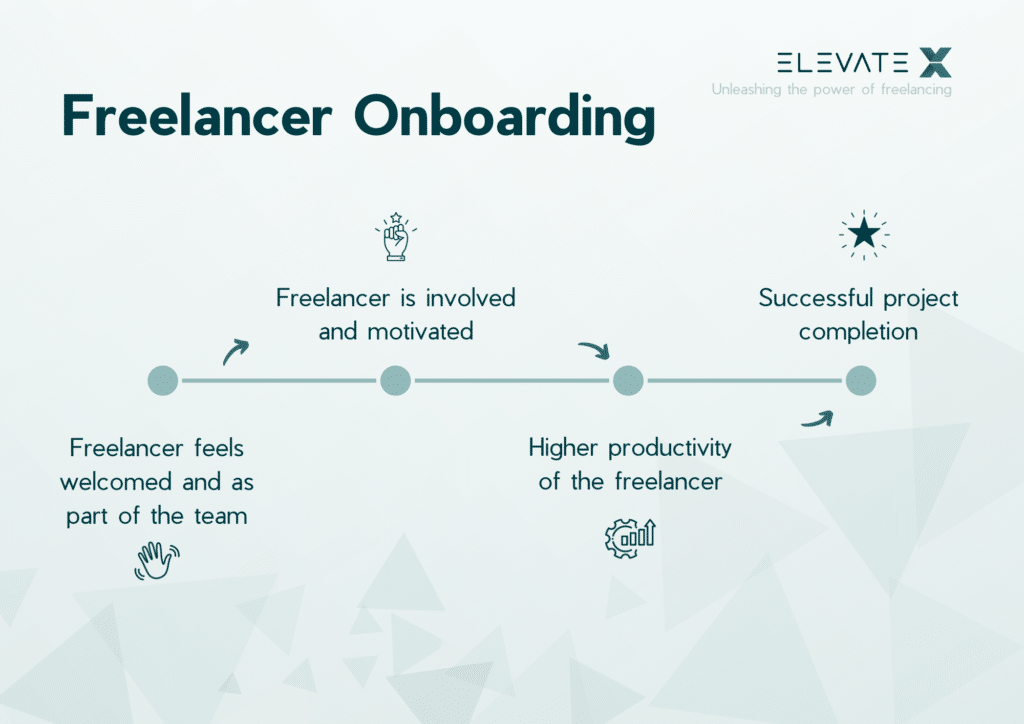In a constantly changing business world where flexibility and efficiency are crucial, freelancers play an increasingly important role in supporting companies. We believe that freelancers will shape the future of the workforce. Their ability to offer highly specialized talent, flexibility, and cost-effectiveness makes them an invaluable resource pool for companies with various digital needs.
1. Best Talent
Freelancers often bring specialized skills and experiences that may not be present in traditional employees. Their independence allows them to continuously educate themselves and specialize in specific fields. This enables companies to benefit from a wide range of highly qualified professionals who are up-to-date with technology and industry trends.
Moreover, freelancers are often motivated and dedicated professionals who approach their work with passion and energy. Since they often work on multiple projects simultaneously, they are skilled at working efficiently and delivering results in a short amount of time. This dedication and enthusiasm can positively impact the overall corporate culture and contribute to an inspiring work environment.
KEY POINTS
- Freelancers provide companies with access to highly specialized talent, flexibility, and cost efficiency.
- They enable companies to quickly fulfill short-term requirements and work without long-term commitments.
- Due to their independence and expertise, freelancers require less supervision and onboarding time, increase diversity, and enable significant cost savings.
2. Short-term Deadlines
In a world where speed and agility are crucial, companies often face sudden short-term requirements. Whether it’s the need to address an urgent customer request, solve an unexpected technical issue, or respond to a sudden market development, the ability to act quickly can provide a crucial competitive advantage.
Freelancers are often the ideal solution for companies needing additional resources quickly. Thanks to their flexibility, they can often be hired within a few days or even hours. They are accustomed to quickly adapting to new projects and can be immediately productive without requiring lengthy onboarding periods.
3. No Long-term Commitments
A key advantage of collaborating with freelancers lies in the flexibility they offer companies. Unlike full-time employees, freelancers do not require long-term contracts or lengthy termination processes. This allows companies to deploy labor only when needed, without entering into long-term financial commitments.
By being able to hire freelancers on a project basis, companies can better control their labor costs and tailor them to specific requirements. Instead of having to pay fixed salaries and benefits such as health insurance or vacation pay, companies can simply make project-based payments to freelancers once the project is completed.
4. Doing More with Less
The ability to achieve more with less is a central aspect of collaborating with freelancers. Companies often face the challenge of efficiently utilizing their resources while meeting high-quality standards. Freelancers provide an ideal solution here, as they enable companies to deploy their workforce exactly where it is most needed without incurring unnecessary costs.
Are you looking for a freelancer?
5. Less Supervision
Another key advantage of collaborating with freelancers is that they typically require less supervision and management effort than full-time employees. Freelancers are experienced professionals accustomed to working autonomously and managing projects independently.
Due to their independence and self-sufficiency, freelancers can usually complete tasks more efficiently without constantly being monitored or controlled. They often bring high expertise and expertise, allowing them to handle complex tasks independently and deliver high-quality results.
6. Onboarding
Compared to full-time employees, freelancers typically require less time and effort for onboarding. They already bring high expertise and experience, allowing them to quickly adapt to new projects and work environments.
For companies, this means significant time and cost savings, as they do not have to conduct extensive onboarding programs. Instead of investing weeks in training new employees, companies can integrate freelancers quickly and easily into projects.

7. Increase Diversity
Collaborating with freelancers offers companies the opportunity to increase their diversity and innovation. Freelancers often come from different regions, cultures, and backgrounds, bringing a variety of perspectives and ideas to a project.
By working with freelancers from different parts of the world, companies can expand their global perspectives and benefit from local expertise. This can be particularly important when companies are expanding into new markets or undertaking international projects.
8. Cost Savings
A significant advantage of collaborating with freelancers is the potential cost savings for companies. Compared to full-time employees, freelancers can represent a more cost-effective option, especially for short-term projects or specialized tasks.
By utilizing freelancers, companies can save considerable costs associated with hiring and retaining full-time employees. They do not have to pay long-term salaries, provide benefits such as health insurance or retirement contributions, or cover vacation or sick days.
Conclusion
Collaborating with freelancers offers companies a variety of benefits that can help increase efficiency, enhance flexibility, and strengthen competitiveness. From access to top talent and flexibility in resource utilization to cost savings and diversity gains, there are numerous reasons why companies should rely on the support of freelancers.
Companies can benefit from freelancers as they provide highly specialized talent, offer flexibility, and are cost-effective without entering into long-term commitments
Thanks to their flexibility, freelancers can often be hired within a few days or even hours and are able to quickly familiarize themselves with new projects and be productive.
Collaborating with freelancers allows companies to bring in various perspectives and ideas, as freelancers often come from different regions and cultures, thereby contributing to increased diversity and innovation potential








